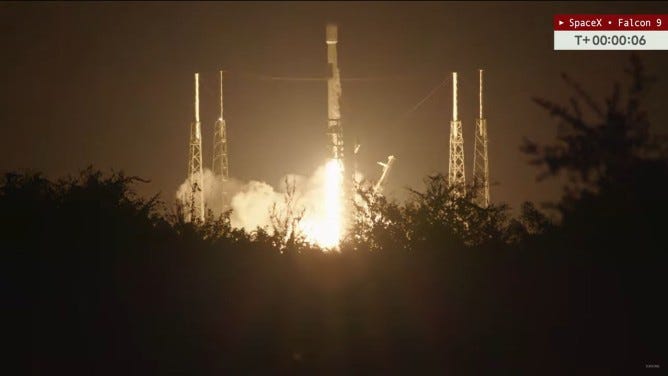Bangkok, Thailand – Stewed, seasoned with sugar and cloves, deep-fried or dished up in a zingy chilli mince – the diets of most Thais are incomplete without pork.
But a $3bn market – supplied nearly entirely by domestic pig farmers – may be about to face competition like never before from the giant hog farms of the world’s third-largest producer, the United States.
Recommended Stories
list of 4 items- list 1 of 4‘Pink baht’: Thailand’s businesses chase same-sex marriage bonanza
- list 2 of 4Thailand’s economy stumbles as Philippines, Vietnam, Indonesia race ahead
- list 3 of 4Thailand’s economy slows amid declining exports, manufacturing
- list 4 of 4Thailand, where Buddhism reigns, challenges Malaysia for Asia’s halal crown
While the fine print of the Thai government’s preliminary trade deal with the US is yet to be revealed, some details have emerged.
Washington has a 10,000-item-long wish list of goods it wants to enter Thailand duty-free to reduce its $45.5bn trade deficit with the Southeast Asian country, an imbalance President Donald Trump says unfairly disadvantages US producers.
The list includes pork, corn, soya beans and some fruits.
Shortly after Trump met Thailand’s caretaker prime minister, Anutin Charnvirakul, on the sidelines of the Association of Southeast Asian Nations (ASEAN) summit in Malaysia last month, the White House revealed some of the many strings attached to its trade deal, which set the tariff rate for the kingdom’s exports to the US at 19 percent.
They include Thailand agreeing to “address and prevent barriers to US food and agricultural products in the Thai market”, according to the White House, and a commitment to “expediting access” for US meat and poultry products.
That has panicked Thailand’s pig farmers, who say the industry may not survive a flood of cheaper, subsidised US pork, which is fattened up on ractopamine, a livestock additive banned in many countries, including the kingdom.
 The entrance of an outlet of the grocery chain on January 8, 2022 [Lauren DeCicca/Getty Images]
The entrance of an outlet of the grocery chain on January 8, 2022 [Lauren DeCicca/Getty Images]If US pork is allowed into Thailand without duties, nothing less than the kingdom’s food security is at stake, according to Worawut Siripun, deputy secretary-general of the Swine Raisers Association of Thailand.
“Producers will not be able to survive and will stop raising pigs. But the risks are not only for farms facing falling pig prices,” Worawut, who has about 10,000 pigs, told Al Jazeera.
“Those who grow feed crops are also affected, as well as animal feed traders, animal feed producers, and veterinary drug sellers. Everyone in the production cycle is impacted.”
Trump had made trade talks with Thailand contingent on Bangkok signing an extended ceasefire agreement with Cambodia.
But in the weeks since meeting Anutin, Thailand has suspended truce talks over alleged Cambodian breaches of the terms of the agreement.
While there are conflicting signals over whether tensions with Cambodia have put Thailand’s trade negotiations with its biggest export destination on the back burner, farmers and livestock companies are bracing for intensified competition.
Thailand’s pork industry has weathered challenges ranging from outbreaks of swine flu to illegal imports from China and Vietnam.
But it faces high costs, largely as a result of government price controls on corn and soya used to feed pigs and other livestock – a measure intended to protect the country’s crop farmers, a key voting bloc.
And like most of Thailand’s agricultural producers, the country’s pig farmers deal with slim margins.
 Butchers chop up pork at the Bangkok Noi wholesale market on January 8, 2022 [Lauren DeCicca/Getty Images]
Butchers chop up pork at the Bangkok Noi wholesale market on January 8, 2022 [Lauren DeCicca/Getty Images]“Both imported and locally produced feed materials in Thailand are more expensive compared to the US, where feed is cheaper,” Worawut said.
Corn and other feed farmers are also bracing for tough times.
Thailand announced earlier this month that it would lift its annual corn import limit, from approximately 50,000 tonnes to 1 million tonnes, and scrap a 20 percent tariff to appease Washington.
Prime Minister Anutin is likely to dissolve parliament in the coming weeks and set a date for new elections.
He is angling to return to office in defiance of critics who say he has already given away too much to Washington before a comprehensive trade deal has been signed.
Trump officials have already announced a deal to gain preferential access to Thailand’s rare earths, the sale of billions of dollars of US-made aircraft and a promise by Bangkok not to tax US digital services companies.
Anutin’s bargaining position has been weakened by tough economic conditions.
 A woman looks at a food stall selling roasted pork during a street festival in Bangkok, on December 28, 2019 [Mladen Antonov/AFP]
A woman looks at a food stall selling roasted pork during a street festival in Bangkok, on December 28, 2019 [Mladen Antonov/AFP]On Monday, the Office of the National Economic and Social Development Council trimmed its economic growth forecast for 2026 to 1.2 percent, down from an expected 2 percent expansion this year – by far the weakest performance among Southeast Asia’s leading economies.
With a third round of trade talks with the US under a cloud following the suspension of the Thailand-Cambodia peace deal, the main political opposition party has called on the government to pause the negotiations and consult with local stakeholders.
“This is a crucial moment,” said Weerayut Karnchuchat, deputy leader of the opposition People’s Party, Thailand’s largest in parliament.
“The minister of commerce has said negotiations will conclude by the end of 2025. That leaves around two months. The government should hold eight weeks of stakeholder hearings … especially groups directly affected, such as corn farmers.”
Thailand should take stock and assess if regional peers with full US trade deals – including Cambodia, Vietnam and Malaysia – are happy with the outcomes and “whether Thailand is offering too much”, he added.
For many midsized businesses, the return of Trump and his trade war has made for a difficult year, with demand depressed across countless supply chains exposed to the US.
Orders are retreating inside Thailand for everything from lightbulbs to electrical wires needed to run factories that export to the US.
Tipok Lertwattanaweerakul, a durian farmer and middleman, said he has seen his profit margins slashed.
Saudi Arabian buyers who sold durian to customers in the US had been Lertwattanaweerakul’s main source of business, but with the Arab country hit with a 10 percent tariff, “they are no longer purchasing from me at all,” he told Al Jazeera.

 3 weeks ago
13
3 weeks ago
13













































